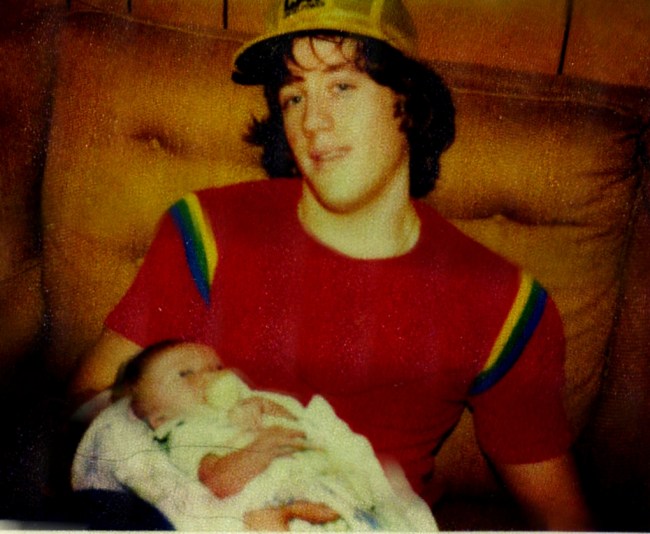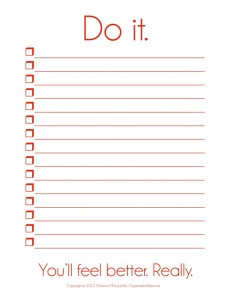Well, I’m pretty stoked about this. I would be even MORE stoked if they were the Seattle Clippers. It’s got a ring to it, no? See ya later Sterling Family!
Looking for a social media job? Do these 5 things.
 Adding to my team, I just went through the hiring process. I’ve been in staffing for 10+ years so I know I hear/read more about interviewing and the job search process than the average person. In fact after 8 years of coaching people how to do it, I would lean towards being an expert on the matter. But I was absolutely blown away by what I assumed was “common sense interview and job search etiquette,” was not that at all.
Adding to my team, I just went through the hiring process. I’ve been in staffing for 10+ years so I know I hear/read more about interviewing and the job search process than the average person. In fact after 8 years of coaching people how to do it, I would lean towards being an expert on the matter. But I was absolutely blown away by what I assumed was “common sense interview and job search etiquette,” was not that at all.
I was hiring for a social media role. I never posted the job description on any job board. I just asked for referrals through my network so the inherently social would bubble up to the top and help narrow my search. That happened for sure. I received many candidates from people I know and respect. So I started calling and emailing.
In the first 3 days of my search I had ruled out 12 referred candidates. 3 for major and multiple spelling and grammatical errors in their communications with me, 3 for too little required experience, 3 for the inability to supply writing or social media post samples, 2 for bad Linkedin profiles (lack of one completely and spelling/grammatical errors on the other) and 1 (admittedly) “beefing up” his resume to get call backs. I did set up 5 interviews. All seemly smart, energetic, experienced social media and/or marketing people. But over 2/3 of the referrals didn’t get a second glance because of mistakes they made, socially!
So you’re probably thinking “maybe all these people weren’t actively looking.” You’re right! But as a social media professional you should constantly be thinking of these things. The reality is your work is very public. It might be to a limited audience but it is still social media.
So make sure you’re doing these things:
1. Google yourself– your future or prospective employer will. Is there anything that you wouldn’t want someone to see? If so, see if you can correct it. Are you not seeing the things you want to? Maybe it’s time to think about what you are doing and if it’s working.
2. Create a full LinkedIn page- As a social media professional you should have a complete bio with job experience (school experience if you’re new to the job market,) your contact info and your skills. This is one of the largest social media platforms, after all. You should be on it and killing it.
3. BE HONEST. It will always come back to bite you in the ass if you’re not. If you don’t have exactly what the job description is asking for, tell them why your experience is still relevant. But don’t make it up.
4. Keep samples of your work. Social media professionals should be able to show samples of their experience just like a Designer or a Developer.
5. SPELL CHECK. For crying out loud, check your work! An email with a potential employer should be treated like your work. If I don’t think you re-read your own email for errors, why would I believe you would do so with the content representing my brand?
Changing a first impression is hard. In a job search or otherwise, you have to be aware. You could miss out on your dream job because the hiring manager passed on you based on your social media presence. It’s important regardless of your job. But for social media specialists, there is no excuse not to be on your game.
Looking for more resources on what to do (and not do) during your job search?
7 Ways To Rock Your Personal LinkedIn Profile
The One Mile Rule: What NOT To Do After Your Interview
5 Reasons You’re Not Getting That Social Media Job
10 Things You Can Do To Improve Your Online Brand
5 Essential Social Media Tips For Your Job Hunt (no laughing! )
Twitter, Job Hunting and Hiring
When Twitter first flew into my life in 2008, I thought it was a joke. And with people using words like “Tweeps” and “Tweet-ups” I was rolling my eyes. Now, I’m sure it’s no less than 100 times a day I check @writingthesurf. It took me several months before I could take it seriously. It took nearly a year before I saw how people were using it in their job searches, without even knowing that’s what they were doing.
Being a Recruiter, at that time, I was always looking for ways to connect with my clients and new web development (my speciality) talent. It seemed like Developers were embracing this Twitter-thing and networking away. It was different than Facebook or Linkedin. Less formal, and ironically, more telling. Even though people weren’t sharing their photos or job history, they were talking about technology, innovation and they didn’t need to “friend” anyone or know their email address to connect. Anyone I intended on having a relationship with I would find on Twitter and follow them. In 2009 the list wasn’t terribly wrong. But it sure grew fast!
This platform changed the way I recruited. But even bigger, it changed the entire job hunt.
Recently I interviewed 10 different Web Developers for a series on my company blog called How To Become a Front End Developer. When asked how they find new jobs and network, every single one of them said social media. 9 of 10 said Twitter. It’s not just Developers, there are many other professions using Twitter to network and find new opportunities. (And if you’re the one hiring these people and you’re not on Twitter, you better re-think your hiring process.)
Developer or otherwise, think about the kind of people you want on your team. Regardless of the language you want them to be proficient in, content you want them to create or pieces you want them to design, you need them to be resourceful and well networked. Those two things make a strong team. Not to say if you don’t have a team full of tweet-crazed players, you’re in trouble. But if you’re looking to add to your team, Twitter should probably be your first stop.
I’m often asked “Twitter or LinkedIn?” It depends on what you’re looking for. If I’m researching skill set, where someone has worked or who recommends them, LinkedIn. If I’m trying to learn about a human being and build a relationship, Twitter. All day. You gain a better understanding of who they are, as a person, what they’re passionate and knowledgeable about and who they engage with. All of those things are important if you’re hiring someone. But they’re equally as important if you’re going to work for someone.
If you’re looking for a job or looking to hire someone, beef up your Twitter activity. Follow people you can learn from. Create lists to help you monitor and organize the people you follow. Most importantly, genuinely engage with the community you want to tap into. Even though I’m no longer a Recruiter, I still connect with new people every day on Twitter. Many of my former talent and clients are now my friends and part of my network. It’s not about the right now, it’s about the relationship down the road.
Have you found a job or hired someone via Twitter or social media? I would love to hear about it!
5 Reasons Freelancers Should Know A Recruiter
I’m not a freelancer. I never have been. So why listen to me? Here’s why: because I was the person hiring them. I was also the person who helped businesses and agencies hire their freelancers. And I was the person who helped many freelancers find work on their own.
I spent years as a Recruiter. Yeah, I know, it can be a dirty word. I was even on a SXSW panel called “Recruiters are full of shit, I am one.” As a freelancer, you can find work on your own. But Recruiters do more than help people FIND work. They have a view into the market, you don’t. They’re also your biggest champion. If you’re new to freelancing or it’s the only thing you’ve ever known, here are five ways you can benefit from knowing a Recruiter who may never put you to work.
1. They understand the market. I hate the word “pulse” but that’s exactly what the Recruiters have on the market. It’s their job. Knowing hiring trends, market rates and understanding the needs of businesses is what they MUST know to do their jobs well. Everyone can benefit from having a little more info around the company they’re interested in partnering with.
2. They can help you prepare. Recruiters understand the inner workings of organizations. Both from talking to people who have worked there and those who hire for their open roles. Even if you found an opportunity on your own but you’re curious about environment, reputation or morale of the company, the history, even simple things like dress code, they can help. Being a freelancer, doesn’t always mean working from home, in your pajamas, so why not get the inside scoop on what to expect?
3. They know how to help you market yourself. They can give you feedback on your resume, your portfolio and your approach. They can direct you to the appropriate people (decision makers.) You’re an awesome Designer? Great! The reality is, you might be able to design your way into anywhere, but knowing how to get in there, is a different story.
4. They’ll throw jobs your way. There are plenty of reasons a Recruiter might pass a job to someone. They might only work “full time” jobs, they know businesses who don’t have budgets for staffing companies or they hear through their network a company, who is not their client, is hiring. I was able to pass along freelance jobs directly to freelancers, they would have never have come across on their own. You can be well networked, but a busy hiring manager can be a catch twenty-two. Recruiters often know the pain points and can send those jobs your way.
5. They can help you negotiate. Freelancers can get stuck in a rate rut. They charge the same thing year after year. Recruiters are well versed in negotiation and market rates. They can help you figure out if you’re not charging enough and how to increase your rate while keeping your clients happy. Some freelancers are not good at negotiating what they deserve. A Recruiter can guide you through the process.
Let’s be honest, we can’t do it all on our own, no matter the career choice. Wondering what the Recruiter gets out of this? They’re playing the long game. Ultimately, it’s reciprocal. When you see their value, you’ll pass it on. And you will have friends and/or fellow freelancers who need help, from time to time, and a Recruiter can help them find work. I know plenty of freelancers who don’t want (or have time) to find their next gig. Recruiters do the leg-work for them. Either way, everyone benefits.
Good Recruiters and good freelancers thrive on building solid relationships. Sure there are crappy people who end up being Recruiters …and Developers and Designers and Teachers and Firemen. All professions have a few jerks. Recruiters do get paid based on who they place in jobs. Freelancers get paid on a project basis. Everyone has to work to get paid. If we all did it the same way, nobody would make any money.
You never know when you’ll meet someone who can change your career.
Quit Asking People If They’re Going To Have Kids
I like to think of myself as a graduation present…from high school. My parent’s were just 18 when I was born. Although I’m preeeeetty sure I wasn’t planned, I think I turned out ok. They were young, but stable, loving, caring parents. I was always surrounded by an extended family who loved me and my siblings who followed. But one thing nobody ever asked my parents was “Are you going to have kids?” They were technically, kids themselves. But had they waited a few more years, surely the question would have come up.
I’m 34. I’ve been married for almost 2 years and our only baby is a 9 year old pup. Almost weekly, I’m asked “Are you going to have kids?” Sometimes it’s by close friends or family. Sometimes it the nail salon lady or a bartender. Sometimes it’s a coworker or neighbor. But it happens. A lot. And it’s rude.
Why do we think it’s ok to ask such personal questions of people? We’re taught to never ask about money, politics or religion. But for some reason, it’s ok to ask about their plans around procreating.
A few months ago I started experimenting with my answer to this question, purely for my own amusement. If I answered “Yes” the next question was usually “when?” or “how many?” If I answered “No” the conversation, more often than not, ended there. When I answered “Maybe” I often got a list of reason why I should have babies.
The reality is, it’s personal. It’s a decision for my husband and I to make. The chances of your advice on whether I should or shouldn’t have kids, impacting my decision, is slim to none. If I want guidance on this very sacred part of life, I’ll ask. How do you know this isn’t a painful topic for me? How do you know we haven’t been trying? How do you know I haven’t been pregnant and miscarried? How do you know we’re not trying to adopt?
If you ask a woman this question, be prepared to hear an answer that makes you uncomfortable. Because being asked about having kids is equally uncomfortable.
You never know what goes into making this life altering decision. And it’s none of your business. I know women who would love to talk about their journey to building a family or their decision not to. I know more women who would prefer you respect their privacy and their body by not questioning what it’s going to do.
If we do end up with kids, you’ll know.
My Dog Can Do One Trick & It’s Wrong
 When I first went to the animal shelter and fell in love with “Pippy” the puppy I couldn’t wait to get her home. And to change her name. (No self respecting dog wants to be called “Pippy.”) I had visions of her shaking my hand for a treat, swimming around with other labs and maybe even retrieving a beer from the fridge for me.
When I first went to the animal shelter and fell in love with “Pippy” the puppy I couldn’t wait to get her home. And to change her name. (No self respecting dog wants to be called “Pippy.”) I had visions of her shaking my hand for a treat, swimming around with other labs and maybe even retrieving a beer from the fridge for me.
Now 8 years later Stella, my Oregon Black Dog (because she’s a black mutt from Oregon,) knows one trick. And it’s wrong.
I made a conscious decision not to teach Stella to fetch. I know plenty of dogs who sit at your feet waiting for you to throw a ball. And then keep throwing. And keep throwing. Drives me nuts. And though I didn’t really think she would ever get me a beer, it was a fun thought.
Before she got arthritis she gave me “hugs” by jumping up and putting her paws on my forearms when I got home. But she would never jump on other people. She makes a loud Chewbacca-like sound when I feed her. I like to think of it as a “thank you.” She comes when she’s called. She sits for a treat. She’ll never steal or beg for your food. She might not care for the swimming or chewing on toys and couldn’t care less about playing with other dogs, but overall, my dog is pretty awesome. I feel really lucky when I go to people’s homes and their dogs don’t listen to commands, they jump all over people, bark and beg for your food.
My Stella is a one trick pup. Here it is. When we give her a treat we attempt to get the Chewbacca noise out of her. We ask her “Can you say it?” She gets up, walks around in a circle and sits back down. She wags her tail and stares at us, so proud of herself. That’s her one trick. That’s it. 
Of course, this has been going on for years, and there is no need to change it. It’s actually really funny. But my husband will never forgive me for not teaching Stella to fetch. Looking back, it is good exercise for dogs and it wouldn’t have hurt. But then again, her ONE trick wouldn’t be so funny if she could fetch.
Emotions and Sports
photo credit: Robert Beck/Sports Illustrated
I tend to be an emotional person. Usually you know exactly how I feel. For better or worse, I’ve made efforts to not be so vocal about my emotions (particualarly in the work place.) But at times, its unavoidable. You’re going to hear my celebrations, complaints and banter on Twitter and Facebook during basketball or football season. If sports can make me jump up and down, have mini heart-attacks and scream at the TV, I can only imagine how the players feel. Why do sports evoke so much emotion in those who don’t even participate in the game? And why do we not expect it from athletes?
In 2012, the Patriots lost the Super Bowl. I happen to be on a plane from Portland to Boston as it was happening. There was a collective sadness as we got off the plane. You could literally see tears in people’s eyes and it was totally silent. You would think that someone died. Why? Because it’s how we connect to others. It’s something that we can believe in. It’s something to get excited about. And the opposite of excited is bound to happen with any team’s fans at some point.
You can probably see where I’m going with this. You shove a microphone in the face of a player walking off the field after winning the biggest game of his career, so far, you’re asking for emotion. Raw, adrenaline fueled emotion. That’s what we saw from Richard Sherman. But stop and think for a second what YOU were doing when this was happening?
If you’re a 49ers fan you were probably cursing at the TV, damning the refs (I agree that wasn’t the right call) and over all pretty frustrated. If you’re a Seahawks fan you were probably jumping up and down, high-fiving your buddies, cheersing the person next to you and screaming (at least I was.) So take those emotions, multiply them by 100 and then you likely have the emotion of a person on the field…of a PLAYOFF game.
While I don’t think it’s right to talk negatively about people, particularly on camera, I think we need to think about what we do expect. Imagine if they interviewed Marshawn Lynch and they got forced one word answers. Boring! As noted in the Forbes post “22 Brief Thoughts About That Richard Sherman Interview,” this is the kind of thing Journalist want. And it’s the kind of televsion you want. You want to see the emotion (mad, sad, happy, whatever.) That’s why you wait to see what the losing coach or QB have to say. You know it’s going to be heavy hearted but that’s what helps people relate to professional athletes. You’re upset your team didn’t win and you feel for them.
So before we go harshly judge the sentiment or reaction of an athlete, think about your emotions related to sports. Next time your team loses or is treated unkindly or you witness a dirty play from an opposing player, think about how you would react in the moments immediately after. Richard Sherman is not a thug. He’s certainly not an idiot. He may not be our idea of “classy” at times, but he’s aware of his behavior. The article he wrote today isn’t exactly an apology, but I think there is a lot of truth to it.
Surfing in Oregon
I don’t know these people or when they shot this video. But I’ve been these people and it was just last month.
If you’re going to surf in Oregon, you own 4 things, besides a surfboard: A wetsuit, booties, a hood & gloves. With the water temperature fluctuating from 45-55 degrees year round it’s NEVER warm. Ever. (It can be colder in August than January!)
Regardless of the time of year, the temperature of the water or the size of the waves, we surf. We surf in December when it’s 30 degrees outside. We surf when it’s sunny and small. We surf when it’s gray and choppy.
I learned to surf in the cold water. When I surf warm water, it’s like shedding a skin. The first time I was nervous. As if my wetsuit, booties, hood and gloves were my protection from whatever was swimming out there there with me.
People always ask you the same question when you say you surf. “Aren’t you afraid of sharks?” OF COURSE I AM! Who isn’t? But if I didn’t do anything I was afraid of my life would be awfully boring. Being in the water, for me, is calming. It’s cleansing. There is nothing bad. There is nothing wrong. There is not worrisome when I’m in the water. 5 people a year die of shark attacks. FIVE. Compare that to cars or even planes and you can see why I “risk” it.
I liked this video because that’s been me and my friends. So many times we’ve driven out to the cloudy Oregon coast only to get into the water for 30 minutes. Then crawl, out of the water, beat up and cold. Or you wait it out so long and it only gets bigger, colder and angrier. Then you sleep on it. You wake up to sunshine and perfect (Oregon) waves.
I’m never going to be a big-wave surfer. But I will always be an Oregon surfer.
Procrastination
There I said it.
I’m an avid list maker and it’s rare I don’t cross off every task. If I make a plan to do something, it WILL get done. I’m dependable. I don’t think anyone who knows me would say otherwise. But the time frame in which the task actually gets done, had me questioning my motivation. Or lack there of.
I recently read a Fast Company article, “The Art of Letting Go: How I Learned to Stop Procrastinating” and came to the realization I don’t procrastinate because I’m lazy. It’s often the opposite. 1. I need time to plan things out in my head, then on paper and then I execute. Or 2. my standards are often set so high I scare myself into thinking I won’t meet the goal.
Or possibly both.
My job expects me to be available during typical office hours, 9a-5p, Monday-Friday. But social media is open 24/7. So I find myself monitoring platforms, updating reports or working on campaign strategies at 11:30p on Saturday night. Is it really procrastinating if I didn’t get the task at hand done by Friday and am doing it Saturday instead? I feel like it is. Technically I’m managing my time well enough to deliver results when expected. But the schedule in which I do it, probably doesn’t fit the average 9-to-5er. Isn’t that really what procrastinating is? Not doing something on someone else’s expected schedule?
Not according to David Mcraney. His post on procrastination says it’s a much bigger problem. That it can manifest itself in every part of your life. He starts out by saying:
The Misconception: You procrastinate because you are lazy and can’t manage your time well.
The Truth: Procrastination is fueled by weakness in the face of impulse and a failure to think about thinking.
I tend to agree…sort of.
I’m afraid my (sometimes) absurd expectations of myself and my work, might not be met. Like when I made a quilt for my husband for Christmas a few years back. I spent the entire week before Christmas in quilt hell. I looked at the fabric for almost 2 months in my living room. I had ideas of what I wanted it to look like, then I doubted my sewing ability. Then I doubted my color choices and bought new fabric. Still just stared at it for another month. But it was finished and wrapped under the tree on Christmas eve.
I, on some level, was afraid of failure. But I was thinking about it. I thought about it every.single.day.
There is a reason the gym is packed on January 2nd. There is a reason stores are open 24 hours the days before Christmas. There is a reason the post office is open late on April 15th. But the reason for each stems from something different inside of us. Maybe it’s fear. Maybe it’s laziness. Maybe it’s bad time management. Or maybe a sense of urgency isn’t created early on so the challenge of completing a meaningful task in a timely manner, doesn’t exist.
Whatever the reason, I do it. There are definitely some things I need to work on when it comes to procrastination. But one thing is certain, I’ll check that box on the to-do list. It might be at the next to the last minute, but it will be done. And on time.
Web Standards Killed the HTML Star by Jeff Croft
I ran across a Jeff Croft post this week that I thought was pretty interesting. Web Standards Killed the HTML Star
Coming from a recruiting background in technology I believe this happens with every technology. Now being on the marketing side, social media specifically, I’m no stranger to having to adapt. I think my job will suffer the same fate to some degree. That’s why learning to expand your skillset is so important. Web development or otherwise, everything evolves, but not everyone adapts.





